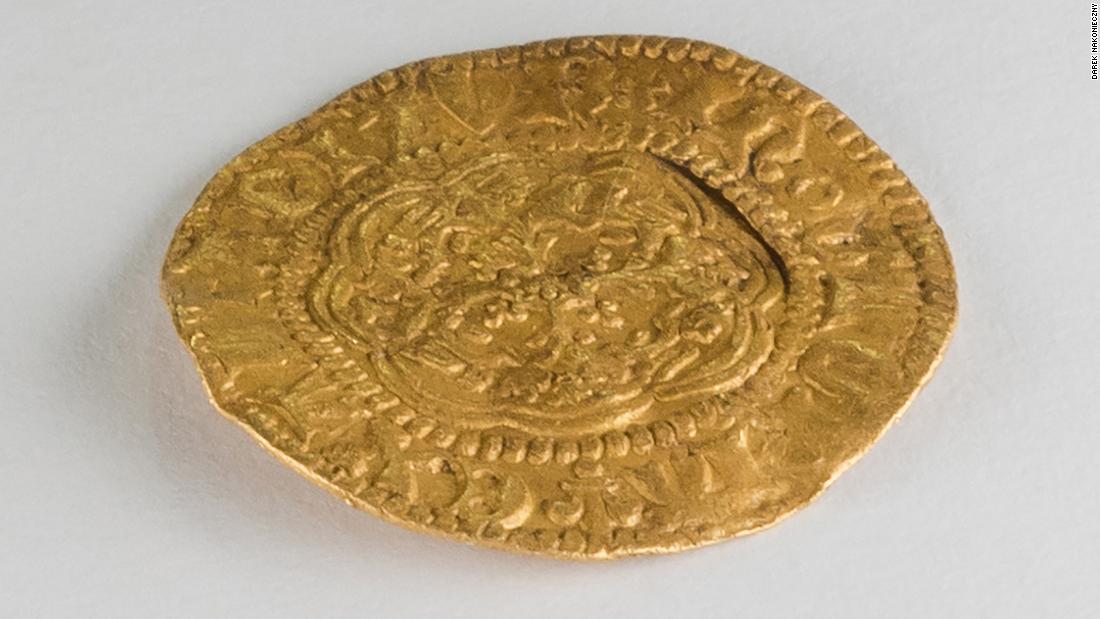In Georgia they find a human tooth of almost 2 million years 1:00
(CNN) --
The discovery of a rare gold coin off the south coast of Newfoundland in Canada could contradict traditional historical narratives about the time of first European contact in the region, as it predates at least 70 years. the arrival of explorer John Cabot on the island.
In a press release published last week, the Government of Newfoundland and Labrador said the English coin was found during the summer of 2022 by Edward Hynes, a local amateur historian, who reported his find to officials as required by law. Historical Resources of the province.
The 600-year-old coin predates the first documented European contact with North America since the Vikings, in a region with a 9,000-year history of human settlement and rich indigenous traditions.
After consultation with Paul Berry, former curator of the Bank of Canada's Mint Museum, the coin was identified as a Henry VI noble quarter, minted in London between 1422 and 1427. In the 15th century, the coin would have represented a significant sum of money, valued at 1 shilling 8 pence, or about $81 Canadian dollars (US$61) today.
Prior to this discovery, a coin struck in the 1490s and found in 2021 at the province's Cupids Cove Plantation Provincial Historic Site was considered the oldest English coin ever found in Canada.
Berry says the coin was likely uncirculated when it was lost, so there is a lot of speculation as to how exactly the Noble Gold Quarter coin made its way to Newfoundland and Labrador.
The exact location of the discovery is being kept secret to discourage treasure hunters.
advertising
In an interview with CBC, provincial archaeologist Jamie Brake — who says that after the ongoing study is completed the coin will likely go on public display at The Rooms museum in the provincial capital of St. John's — commented on the significance of the find: "Between England and here, the people back there did not yet know Newfoundland or North America at the time it was coined," he said.
Both sides of the coin, shown next to a modern Canadian quarter for scale.
(Credit: Darek Nakonieczny)
The discovery of the coin underscores the intriguing archaeological record in Newfoundland and Labrador, Canada's easternmost province.
Stories of the arrival of the Vikings are recorded in Icelandic sagas, citing visits by Leif Erikson over 1,000 years ago and archaeological evidence of a Norse settlement that was found at L'Anse aux Meadows, Newfoundland, and declared a World Heritage Site by UNESCO in 1978.
Other unconfirmed European contacts include accounts from England's Channel Islands of a ship veering off course in the late 15th century into a strange land teeming with fish;
Portuguese historical maps depicting the Terra do Bacalhau (or the land of the codfish);
and the "Voyage of Saint Brendan", a legendary account of an early sixth-century sea voyage taken by an Irish abbot.
In 1583, Newfoundland became England's first possession in North America, and the establishment of fishing operations off the island's outer coast cut off access to traditional food sources for the indigenous population.
"There's been some knowledge of a pre-16th century European presence here for a while, you know, excluding the Norse and so on," Brake told CBC.
"The possibility of an occupation perhaps prior to the 16th century would be quite surprising and very significant in this part of the world."
Art

